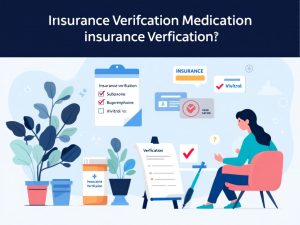Trauma can have lasting effects on both your emotional well-being and your ability to overcome substance use challenges. If you or a loved one is seeking a path toward renewed health, trauma informed addiction therapy offers a holistic framework that recognizes how past experiences shape current behaviors. This approach moves beyond simply managing symptoms and instead emphasizes safety, trust, and empowerment in every aspect of treatment. By identifying and addressing possible traumas at their root, you can focus on the unique challenges involved in long-term recovery.
Understand trauma informed therapy
Trauma informed therapy is an approach designed to integrate an understanding of how traumatic experiences can contribute to substance use disorders. It frames addiction treatment in a way that prioritizes empathy and recognizes emotional triggers, promoting a supportive environment that fosters accountability, self-awareness, and resilience. You may find this method particularly meaningful if you have gone through deeply distressing events, such as childhood adversity, combat experiences, or grief-inducing situations.
In 2020, the SAMHSA National Helpline received 833,598 calls, reflecting a 27 percent increase from the previous year (SAMHSA). This surge underscores the escalating need for interventions that address both addiction and underlying traumas. Trauma informed care was introduced in 2001 by researchers Harris and Fallot, who established guiding principles like safety, trustworthiness, choice, collaboration, and empowerment (NCBI Bookshelf). These principles serve to reduce the risk of re-traumatization and emphasize creating spaces where you can feel secure enough to explore challenging memories or feelings.
Because traumatic events can affect the way your brain processes fear and distress, conventional therapies sometimes fall short if they do not consider unresolved traumatic experiences. Trauma informed addiction therapy acknowledges that you might turn to substances to cope with difficult emotions or memories, creating a cycle that can be deeply entrenched. Through an empathetic, non-judgmental lens, you are encouraged to explore the past at your own pace, implementing new coping strategies for genuine transformation.
Key elements of trauma informed therapy
- Safety: Establishing an environment where you feel physically and emotionally protected.
- Trust: Building open communication between you and your care team to encourage honesty.
- Collaboration: Involving you in decisions about treatment goals and methodologies.
- Empowerment: Validating your strengths and capabilities to instill confidence.
- Choice: Allowing you to guide the therapeutic journey, respecting your input and comfort levels.
The supportive environment promoted by trauma informed addiction therapy is particularly helpful if you face social constraints, cultural stigmas, or personal shame tied to triggering events. Instead of a one-size-fits-all approach, therapy is tailored to your individual needs, acknowledging that each person’s healing process is unique.
Recognize trauma’s impact on recovery
Trauma can manifest in diverse ways and exert powerful influences over your behavior. Many individuals dealing with addiction and mental health issues first encountered adversity during childhood. Research indicates that nearly 90% of adults in the United States have experienced at least one traumatic event in their lifetime, and 70.4% of respondents across 24 countries have encountered lifetime traumas (The Permanente Journal). These staggering numbers highlight just how prevalent trauma is, emphasizing that meaningful addiction treatment must address the root causes behind substance use.
Emotional and physical effects
Unresolved trauma can lead to constant worry, intense anxiety, feelings of hopelessness, or even guilt and shame. These emotional weights may drive you to self-medicate through drugs or alcohol, offering temporary escapes from chronic distress. Physically, trauma can manifest as headaches, dizziness, muscle tension, and a racing heartbeat, all of which may trigger cravings in an attempt to numb discomfort. Over time, this cycle reinforces substance dependence and hampers your ability to pursue long-term recovery.
Many people might resort to substances like opioids, alcohol, or stimulants to manage traumatic flashbacks or intrusive thoughts, creating a pattern that is difficult to break without professional intervention. If you recognize such symptoms in yourself or a loved one, specialty care such as heroin addiction treatment or prescription opioid treatment could be a crucial step toward breaking these cycles.
Importance of individualized plans
Because trauma affects people in different ways, a comprehensive care plan that includes trauma informed addiction therapy should be highly personalized. Effective programs often use:
- Strengths-based approaches, emphasizing resilience and capabilities
- Collaborative goal-setting, ensuring your voice shapes the treatment
- Flexible timelines, giving you the space to process trauma at your own pace
Additionally, if you face co-occurring conditions like Post-Traumatic Stress Disorder (PTSD) alongside addiction, integrated services such as ptsd addiction treatment are vital for addressing all aspects of your well-being. Over time, you can learn to rewrite the narrative around adverse experiences, developing healthier coping mechanisms for uninterrupted progress in your recovery.
Address essential therapy components
Trauma informed addiction therapy does not exist in a vacuum. It weaves together different concepts and interventions, all designed to ensure you receive personalized support necessary for lasting recovery.
Collaboration and empowerment
One of the core tenets of trauma informed care is recognizing the survivor’s expertise. That means your lived experience is valued, and your input guides the course of therapy. Whether you choose to engage in family therapy addiction sessions or seek individual counseling, your perspectives shape each step. By sharing decision-making with the clinical team, you become an active participant rather than a passive recipient. This sense of autonomy can help you feel more emotionally safe, setting the stage for deeper insights and breakthroughs.
Empowerment might involve practicing mindfulness exercises to reduce stress, exploring creative outlets like expressive therapy addiction, or forming supportive peer relationships through group therapy addiction. The crucial point is that you have a choice. Such shared leadership in treatment fosters trust and can reduce feelings of vulnerability or helplessness.
Addressing co-occurring conditions
Research shows that up to 95% of individuals living with substance use disorders also report a history of trauma (Hazelden Betty Ford Foundation). Moreover, those with PTSD are five times more likely to seek help for substance use than the general population. These figures illustrate why it is imperative for treatment programs to be prepared to handle both trauma and addiction simultaneously.
By integrating mental health services and substance use treatment—such as opioid addiction treatment or alcohol use disorder treatment—you can address both the psychological and physical manifestations of trauma. This merging of efforts helps prevent untreated trauma from unraveling the gains you make in addiction recovery.
Non-punitive and therapeutic environment
Traditional approaches to substance misuse have sometimes relied on punitive measures that can inadvertently contribute to re-traumatization. In contrast, trauma informed therapy highlights the importance of compassion in a non-punitive outpatient care setting (see non punitive outpatient care). Rather than focusing on blame or punishment, the objective is to create a judgment-free context in which you feel comfortable exploring painful memories and patterns.
Studies have shown that high-pressure interventions, including the use of restraints or seclusion, can cause emotional harm and sometimes lead to more resistance in treatment settings (SAMHSA). By contrast, a calm, reassuring atmosphere rooted in dedicated trauma informed practices fosters trust and commitment to healing. This shift in philosophy marks a significant evolution in addiction treatment, showing respect for your dignity while acknowledging the complexity of recovery.
Explore key evidence-based methods
Trauma informed addiction therapy draws from a variety of techniques and evidence-based modalities. While the specific path you take will depend on your personal needs and the particular challenges you face, it can be helpful to see how various approaches converge to create comprehensive care. Below is an overview of some effective methods:
| Therapy Method | Description | Suitability |
|---|---|---|
| Exposure Therapy | Involves gradually confronting traumatic memories or triggers to lessen emotional reactivity. | Particularly helpful for PTSD-related symptoms, requires a secure therapeutic alliance. |
| Trauma-Focused CBT (TF-CBT) | Integrates cognitive behavioral strategies to reshape negative thoughts related to trauma. | Beneficial if you need structured exercises and coping mechanisms to counter intrusive thoughts. |
| EMDR (Eye Movement Desensitization and Reprocessing) | Utilizes guided eye movements or other bilateral stimulation to help you reprocess trauma. | Effective for many trauma survivors who struggle with vivid flashbacks or intense anxiety. |
| Seeking Safety | Focuses on present-day coping skills without delving deeply into trauma narratives. | Ideal if you are in early recovery and need immediate, practical tools for emotional regulation. |
Each method prioritizes your emotional and physical safety, ensuring the process remains manageable and free from intimidation. Additionally, many trauma informed programs incorporate complementary therapies like mindfulness practice, yoga, and relaxation training to further ground you in the present moment. Approaches like mindfulness therapy addiction may offer ongoing benefits, helping you develop resilience and reduce harmful ruminations.
Integration with other treatments
It is not uncommon to combine multiple interventions—such as cbt for addiction or dbt for addiction—within a single treatment plan, especially for those grappling with co-occurring disorders. For instance, you might rely on DBT’s emotional regulation techniques while also undergoing EMDR to address nightmares or panic episodes linked to trauma. This approach ensures that every angle of your situation is considered so you can achieve meaningful progress on all fronts.
Community and peer support
Peer support remains a cornerstone of trauma informed therapy because it reduces isolation. Engaging in groups—facilitated both in-person and through virtual therapy addiction—offers you the chance to share experiences, learn healthy coping mechanisms, and build community. According to multiple studies, social connection is integral to preventing relapse, and group settings can help you feel understood by others who have encountered similar struggles.
Through a structured recovery program that treats each dimension of your life—be it physical health, mental wellness, or social support—it becomes easier to adopt sustainable habits. You not only address the past but also learn how to shape a healthier future.
Choose Epic Health Partners
Making the choice to seek help is often one of the hardest steps in recovery. At Epic Health Partners, we understand the unique challenges that come with trauma and how those experiences can complicate addiction. Our aim is to provide comprehensive care that respects your story and meets your specific needs. When you or a loved one turn to us, you will find a supportive environment run by professionals who genuinely acknowledge the complexity of recovery.
Why Epic Health Partners is right for you
- Tailored treatment programs: We don’t believe in a one-size-fits-all approach. We develop individualized plans that consider your history, preferences, and goals, ensuring you receive the support necessary for lasting recovery.
- Evidence-based and holistic methods: We integrate science-backed therapies with holistic recovery therapy approaches, so you can benefit from a range of strategies. Whether you need benzodiazepine addiction treatment or marijuana use disorder treatment, we have specialized services that honor your circumstances.
- Compassionate clinical team: Our clinicians are trained in trauma informed care principles, equipped to provide psychoeducation and unwavering empathy. By focusing on safety and trust, we reduce the shame often associated with addiction.
- Outpatient flexibility: We recognize that many responsibilities—such as work, family, or school—require a flexible schedule. We offer options like telehealth addiction counseling to make sure you receive consistent support, no matter where you live.
- Collaborative networks: Recovery is ultimately a communal effort. Whether you connect through group therapy addiction consult with psychiatrists, or participate in specialized programs like veteran addiction support or lgbtq addiction support, we help you address every facet of well-being.
Integrated and non-judgmental care
Epic Health Partners is committed to creating a non-judgmental environment where you feel respected and validated. From your initial clinical intake assessment to follow-up sessions, our staff prioritizes transparency and consistency. We aim to reduce any barriers related to finances or logistics, offering insurance accepted outpatient care, with coverage options that include medicaid mental health provider and medicare mental health provider, so you can focus on healing without undue stress.
We also recognize that trauma can occur in many contexts, including the justice system or family courts. If you need specialized resources like justice involved support programs or court mandated dui classes, our supportive structure ensures you can comply with legal obligations while still centering your personal growth. The same applies to unique populations, such as pregnant women addiction support and postpartum addiction support, where we integrate medical care, mental health services, and social support.
Empowerment through comprehensive care
It is not enough to simply abstain from substances if you lack the confidence and tools to maintain long-term well-being. With a strong focus on strengths-based interventions, we help you rebuild your confidence so you can manage stress, triggers, and setbacks in constructive ways. Our programs incorporate resources like life skills training addiction, helping you nurture healthier relationships and reclaim autonomy in your daily routines.
This holistic view also includes attention to things like nutrition support, mindfulness, and time management—elements that might seem minor but play a major role in your day-to-day balance. Our treatment plans may include nutrition support addiction, ensuring you get the physical foundation needed for emotional stability. Likewise, mindfulness therapy addiction can help ground you in the present moment, diminishing the power of anxiety-linked thoughts or traumas.
Your journey with Epic Health Partners is a collaborative endeavor. We’ll work side by side to identify the methods that resonate with you, adjusting as necessary to ensure your evolving needs are met. After completing a program, you can stay connected through continued support and recovery coaching. This continuity of care helps you build on your progress, reinforcing the breakthroughs you achieve in treatment.
Frequently asked questions
What is trauma informed addiction therapy?
Trauma informed addiction therapy is an approach that recognizes how past distressing experiences contribute to substance use. It aims to create a safe environment where traumatic memories can be addressed alongside addiction, decreasing the likelihood of relapse. By focusing on empowerment, collaboration, and emotional safety, it gives you tools to manage debilitating symptoms while working toward lasting recovery.
How does trauma informed therapy differ from traditional methods?
Standard treatment models may concentrate heavily on substance use but overlook unresolved trauma, which can be a core driver of addiction. Trauma informed therapy, on the other hand, intervenes at the root cause, ensuring that your emotional well-being and history are factored into every step of recovery. This distinction encourages a more compassionate, holistic approach rather than a surface-level fix.
Is trauma informed addiction therapy suitable for loved ones with complex histories?
Yes. Individuals who have experienced multiple traumas or suffer from co-occurring illnesses such as anxiety, depression, or PTSD can benefit significantly from trauma informed therapy. By simultaneously treating addiction and the underlying trauma, the approach reduces the risk of unresolved issues derailing progress. Integrated services, including fentanyl addiction treatment or cocaine addiction treatment, serve to address complex cases in a nuanced and empathetic manner.
How long does trauma informed therapy usually last?
The duration of therapy varies based on your personal situation, the intensity of your symptoms, and the available support. Some people benefit from several months of targeted therapy sessions, while others may need ongoing care. Outpatient options, such as virtual therapy addiction or flexible scheduling, can accommodate your work or family commitments, ensuring consistent engagement with treatment.
Does Epic Health Partners accept insurance for trauma informed therapy?
Yes. Our center understands that finances can be a substantial barrier, so we work with numerous insurance plans, including Medicaid and Medicare. Our insurance accepted outpatient care ensures you have a variety of payment options, allowing you to prioritize getting the help you need without overstressing about financial obstacles.
Trauma can overshadow your life for years, influencing how you see yourself and the world around you. However, recovery is absolutely possible when you have the right support system in place. Trauma informed addiction therapy serves as a pathway for deep, meaningful rehabilitation by addressing emotional pain and substance use in tandem. With professional guidance, you can develop resilience, discover healthier coping mechanisms, and begin to trust in your own ability to heal.
Epic Health Partners stands ready to walk alongside you on this journey. Through individualized plans, evidence-based therapies, and a deeply respectful approach, we strive to help you or your loved one transform trauma into a catalyst for growth. It takes courage to confront old wounds, but with a treatment framework that places safety and empathy at the forefront, you can rebuild your life on a foundation of trust, hope, and newfound strength.







